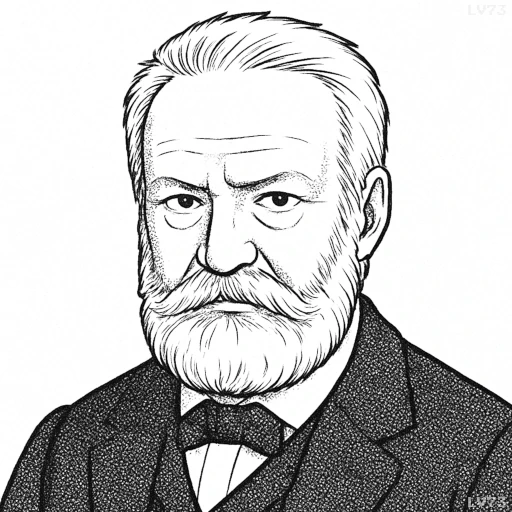“Virtue has a veil, vice a mask.”

- February 26, 1802 – May 22, 1885
- Born in France
- Author, poet, playwright
table of contents
Quote
“Virtue has a veil, vice a mask.”
Explanation
In this quote, Victor Hugo draws a distinction between virtue and vice in terms of their outward appearances. He suggests that virtue is often hidden or subtle, represented by a veil that may not always be immediately visible. Virtue, in Hugo’s view, does not seek to expose itself, but rather is often revealed through quiet, humble actions or through the character of a person. It is something understated, not seeking attention or praise.
In contrast, vice is represented by a mask, implying that it is something that conceals or hides its true nature behind a facade. Vice often presents itself with an outward show—whether through pride, arrogance, or deception—to appear more appealing or acceptable than it truly is. The mask suggests that vice requires a disguise to deceive others and protect itself from being exposed.
Hugo’s words reflect his view that virtue is often modest and not self-promoting, while vice is more deceitful, disguising its true harmful nature in order to manipulate others. This also speaks to the broader human tendency to hide our flaws while presenting our best selves, and how the inner truth often remains obscured.
In modern terms, this quote speaks to the idea that goodness is often less showy and more understated, while wrongdoing tends to be dressed up to appear more attractive or acceptable than it really is. It reminds us that true virtue does not need to be advertised or exposed, while vice often thrives on appearances, hiding its harmful intent behind a false facade.
Would you like to share your impressions or related stories about this quote in the comments section?




